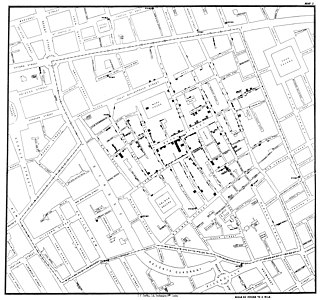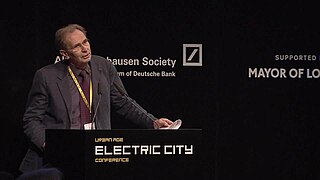Related Research Articles

Human geography or anthropogeography is the branch of geography that is associated and deals with humans and their relationships with communities, cultures, economies, and interactions with the environment by studying their relations with and across locations. It analyzes patterns of human social interaction, their interactions with the environment, and their spatial interdependencies by application of qualitative and quantitative research methods.

Robert Ezra Park was an American urban sociologist who is considered to be one of the most influential figures in early U.S. sociology. Park was a pioneer in the field of sociology, changing it from a passive philosophical discipline to an active discipline rooted in the study of human behavior. He made significant contributions to the study of urban communities, race relations and the development of empirically grounded research methods, most notably participant observation. From 1905 to 1914, Park worked with Booker T. Washington at the Tuskegee Institute. After Tuskegee, he taught at the University of Chicago from 1914 to 1933, where he played a leading role in the development of the Chicago School of sociology. Park is noted for his work in human ecology, race relations, human migration, cultural assimilation, social movements, and social disorganization.

Arjun Appadurai is an Indian-American anthropologist recognized as a major theorist in globalization studies. In his anthropological work, he discusses the importance of the modernity of nation states and globalization. He is the former University of Chicago professor of anthropology and South Asian Languages and Civilizations, Humanities Dean of the University of Chicago, director of the city center and globalization at Yale University, and the Education and Human Development Studies professor at NYU Steinhardt School of Culture.
Chris Philo FAcSS is Professor of Geography at the Department of Geographical and Earth Sciences, the University of Glasgow.

Sir Nigel John Thrift, is a British academic and geographer. In 2018 he was appointed as Chair of the Committee on Radioactive Waste Management, a committee that gives independent scientific and technical advice on radioactive waste to the UK government and the devolved administrations. He is a Visiting Professor at the University of Oxford and Tsinghua University and an Emeritus Professor at the University of Bristol. In 2016 and 2017 he was the Executive Director of the Schwarzman Scholars, an international leadership program at Tsinghua University in Beijing. He was the Vice-Chancellor of the University of Warwick from 2006 to 2016. He is a leading academic in the fields of human geography and the social sciences.

Robert Andrew Foley, FBA is a British anthropologist, archaeologist, and academic, specialising in human evolution. From 1977 to 1985, he was a lecturer in anthropology at the University of Durham. He has been a fellow of King's College, Cambridge since 1987, and Leverhulme Professor of Human Evolution at the University of Cambridge since 2003.

Tourism geography is the study of travel and tourism, as an industry and as a social and cultural activity. Tourism geography covers a wide range of interests including the environmental impact of tourism, the geographies of tourism and leisure economies, answering tourism industry and management concerns and the sociology of tourism and locations of tourism.

Denis Edmund Cosgrove was a distinguished British cultural geographer and Professor of Geography at the University of California, Los Angeles. Before this, he was Professor of Human Geography and Dean of the Graduate School at Royal Holloway, University of London. In 1998, he received the prestigious Back Award from the Royal Geographical Society.

John Richard Urry was a British sociologist who served as a professor at Lancaster University. He is noted for work in the fields of the sociology of tourism and mobility.
Neil Robert Smith was a Scottish geographer and academic. He was Distinguished Professor of Anthropology and Geography at the Graduate Center of the City University of New York, and winner of numerous awards, including the Globe Book Award of the Association of American Geographers.
Joe Painter FAcSS is a British geographer and academic.

The Department of Geography is one of the constituent departments of the University of Cambridge and is located on the Downing Site. The department has long had an international reputation as a leading centre of research and is consistently ranked as one of the best geography departments in the UK. In 2013 the department was ranked by The Guardian University Rankings as the best geography undergraduate degree in the country.
Cindi Katz, a geographer, is Professor in Environmental Psychology, Earth and Environmental Sciences, American Studies, and Women's Studies at the CUNY Graduate Center. Her work concerns social reproduction and the production of space, place and nature; children and the environment; the consequences of global economic restructuring for everyday life; the privatization of the public environment, the intertwining of memory and history in the geographical imagination, and the intertwined spatialities of homeland and home-based security. She is known for her work on social reproduction and everyday life, research on children's geographies, her intervention on "minor theory", and the notion of counter-topography, which is a means of recognizing the historical and geographical specificities of particular places while inferring their analytic connections to specific material social practices.
Noel Castree FAcSS is a British geographer whose research has focused on capitalism-environment relationships and, more recently, on the role that various experts play in discourses about global environmental change. He is currently the editor-in-chief of the peer-reviewed journal Progress in Human Geography.

Melvin Lawrence Ember was an American cultural anthropologist and cross-cultural researcher with wide-ranging interests who combined an active research career with writing for nonprofessionals.
Ray Hudson, FBA, FAcSS is a British academic. He holds the degrees of PhD and DSc from Bristol University and. DLitt from Durham University. He is Professor of Geography and Deputy Vice-Chancellor at Durham University. From 2014-2015 he was acting Vice-Chancellor and Warden of Durham University. Currently he remains as Professor of Geography.

Philip Hubbard is a British geographer. He is currently Professor of Urban Studies at King's College London, having previously served as the head of the School of Social Policy, Sociology, and Social Research, University of Kent. Hubbard has written widely cited work on urban sociology, urban geography, and social geographies.

Geography of media and communication is an interdisciplinary research area bringing together human geography with media studies and communication theory. Research addressing the geography of media and communication seeks to understand how acts of communication and the systems they depend on both shape and are shaped by geographical patterns and processes.
Peter Jackson, FBA, FAcSS is a human geographer. Since 1993, he has been professor of human geography at the University of Sheffield.
Philip Andrew Crang, FAcSS, is a British cultural and human geographer. Since 2005, he has Professor of Cultural Geography at Royal Holloway, University of London.
References
- ↑ "Professor M.A. Crang - Durham University". www.dur.ac.uk. Retrieved 2020-10-27.
- ↑ ORCID. "Mike Crang (0000-0001-7678-8496)". orcid.org. Retrieved 2020-10-27.
- ↑ "Mike Crang's Publons profile". publons.com. Retrieved 2020-10-27.